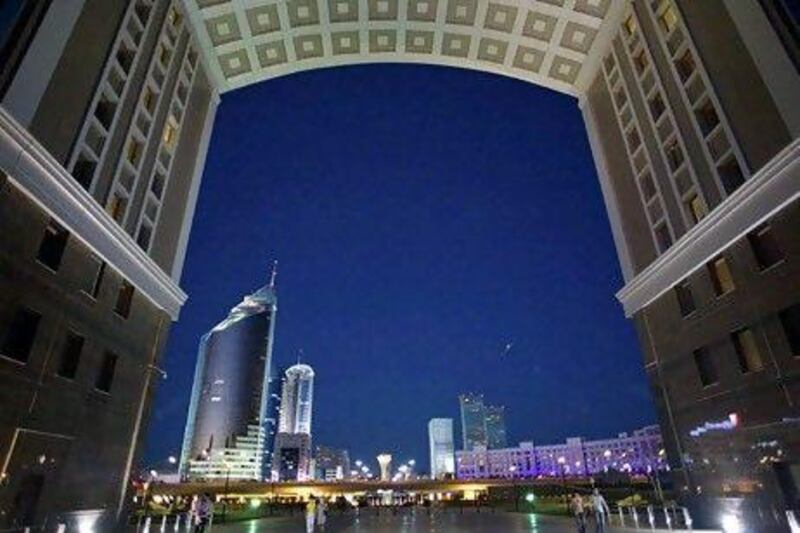There is much about Astana that is recognisable, even familiar. But then something reminds you that you are in the heart of Turkic Asia, in a part of the world that has been the setting for momentous events for millennia.
Most residents of Dubai would feel at home in the Kazakh capital, with its mix of hyperbolic architecture grafted over an older but still very much modern-era substructure.
Glass and steel monumentalism nestles, not always congruously, beside run-down bungalows complete with allotment gardens.
Soviet communalism from the 1950s and 1960s is evident in square four-storey housing blocks that have not weathered very well, especially in comparison with the towers that have appeared since the city was made the capital in 1997.
The communist heritage is everywhere including, bizarrely, in the window of the smart Honda SUV that picked me up from the airport.
In full display there was the old red flag of the Soviet era, with the letters "CCCP" in Russian Cyrillic - the acronym for the Union of Soviet Socialist Republics - slapping you in the face.
This was entirely unexpected in a country that won independence from the Soviets in 1991 and which has tried hard to go its own way ever since, bearing in mind the proximity of its closest geographical and ethnic neighbour, Russia.
I asked the driver, a man in his mid-30s in the obligatory "Moscow Mafia" black leather jacket, if the flag meant he was a communist.
"No," came back the reply via my guide and interpreter. "He just means he was born a Soviet and is still proud of it."
---
The big question for the press corps, at least among the English-speaking element here for the Astana Economic Forum, was this: would Tony Blair, the former British prime minister and occasional adviser to the Kazakh president,Nursultan Nazarbayev, turn up in person for the proceedings?
The list of participants contained some world leaders, a sprinkling of Nobel laureates, a host of economic and political experts from Central Asia and Eastern Europe, as well as a star turn from the US economist Nouriel Roubini, due to talk about the prospects for the global economy.
But at least until yesterday, Mr Blair's name was not there.
However, I can reveal, via an updated list circulating in Astana, that he will be at the forum, speaking in a "dialogue of leaders" about new financial and economic policy, tomorrow evening, 6pm local time, at the Palace of Independence Congress Hall.
Russian journalists were unimpressed at my discovery.
"Who's he now? He's history. If Putin was here, now that would be important," was the judgement of one.
---
Kazakhstan is a cosmopolitan country, the officials who guided me through the capital were keen to point out, reeling off an impressive list of nationalities whose forefathers came to the country over the years: Kazakhs (of course) but also Russians, Uzbecks, Tajiks, Germans, Japanese…
But hold on, I thought, those last two didn't exactly yearn for Kazakhstan as their spiritual home, did they?
There is a significant German and Japanese presence in the country, mainly because they were sent to the farthest-flung reaches of the Soviet Union as prisoners of war in 1945.
I suppose it's a testimony to the country that at least some of them decided to stay.
Even so, for a cosmopolitan country, a black face is, apparently, rare. One of the editorial party at the forum is a South African from Johannesburg who was surprised, amused and (I think) finally annoyed at the attention he got in one of the big malls.
Families gathered around him to have their photographs taken, one after the other, with small children perched smiling on his knee.
"They think a black man brings good luck," explained one of the minders.
Even so, it was a little embarrassing.
twitter: Follow and share our breaking business news. Follow us
iPad users can follow our twitterfeed via Flipboard - just search for Ind_Insights on the app.





